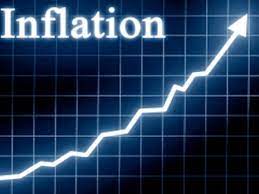
The world is entering a new period of greater inflation and interest rates, according to the head of the Bank for International Settlements, as deteriorating ties between the West, Russia, and China, as well as COVID after-effects, push globalisation backward.
Due to rising global energy and food prices, year-on-year inflation is currently above 5% in nearly 60 per cent of rich economies, the highest share since the late 1980s, while it is above 7% in more than half of the developing world.
While major economies such as the United States and the United Kingdom, as well as large swaths of less developed economies, are rising interest rates from all-time lows, if a fundamental paradigm change were to take root, a rapid acceleration would be required.
"A key message is that we may be on the cusp of a new inflationary era," the general manager of the BIS central bank umbrella group, Agustín Carstens, said on Tuesday.
"We need to be open to the possibility that the inflationary environment is changing fundamentally," Carstens added. And "if my thesis is correct, central banks will need to adjust".
The rebound in energy, commodity, and food prices was exacerbated by the war in Ukraine, according to this view. Both the epidemic and trade disputes have harmed supply chains, and rising living expenses have prompted workers to demand greater wages.
There are also indicators that consumer, business, and financial market expectations about how high inflation will rise are becoming "unmoored."
Professional projections now predict inflation of over 4.5 percent in the United States and much of Europe over the next two years, as well as above 3.5 percent in many other advanced nations, according to Carstens.
The immediate effect would be that politicians would have to immediately adjust their "mindsets" to address how to prevent inflation from spiralling out of control, an issue that few have faced since the Great Depression.
"Most likely, this will require real interest rates to rise above neutral levels for a time in order to moderate demand," Carstens said, acknowledging that it could make them unpopular.
"But central banks have been here before," he said. "They are fully aware that the short-term costs in terms of activity and employment are the price to pay to avoid bigger costs down the road."
He advised governments to resist the temptation to use higher interest rates or inflation to mitigate the pain.
"The key to higher sustainable growth cannot be expansionary monetary or fiscal policy," Carsten's said.
"Many of the economic challenges we face today stem from the neglect of supply side policies over the past decade or more."
(Source:www.reuters.com)
Due to rising global energy and food prices, year-on-year inflation is currently above 5% in nearly 60 per cent of rich economies, the highest share since the late 1980s, while it is above 7% in more than half of the developing world.
While major economies such as the United States and the United Kingdom, as well as large swaths of less developed economies, are rising interest rates from all-time lows, if a fundamental paradigm change were to take root, a rapid acceleration would be required.
"A key message is that we may be on the cusp of a new inflationary era," the general manager of the BIS central bank umbrella group, Agustín Carstens, said on Tuesday.
"We need to be open to the possibility that the inflationary environment is changing fundamentally," Carstens added. And "if my thesis is correct, central banks will need to adjust".
The rebound in energy, commodity, and food prices was exacerbated by the war in Ukraine, according to this view. Both the epidemic and trade disputes have harmed supply chains, and rising living expenses have prompted workers to demand greater wages.
There are also indicators that consumer, business, and financial market expectations about how high inflation will rise are becoming "unmoored."
Professional projections now predict inflation of over 4.5 percent in the United States and much of Europe over the next two years, as well as above 3.5 percent in many other advanced nations, according to Carstens.
The immediate effect would be that politicians would have to immediately adjust their "mindsets" to address how to prevent inflation from spiralling out of control, an issue that few have faced since the Great Depression.
"Most likely, this will require real interest rates to rise above neutral levels for a time in order to moderate demand," Carstens said, acknowledging that it could make them unpopular.
"But central banks have been here before," he said. "They are fully aware that the short-term costs in terms of activity and employment are the price to pay to avoid bigger costs down the road."
He advised governments to resist the temptation to use higher interest rates or inflation to mitigate the pain.
"The key to higher sustainable growth cannot be expansionary monetary or fiscal policy," Carsten's said.
"Many of the economic challenges we face today stem from the neglect of supply side policies over the past decade or more."
(Source:www.reuters.com)














